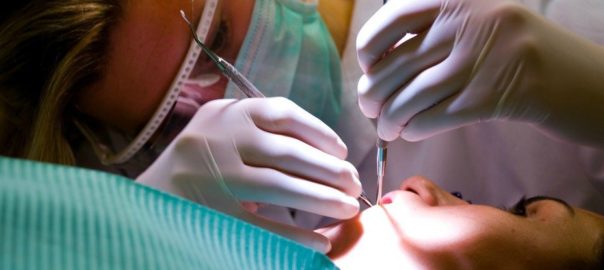Alzheimer’s Drug Shows Regenerative Potential In Teeth

In a study by a team at King’s College in London, a drug that was originally developed for the treatment of Alzheimer’s disease has shown potential as a local treatment for dental cavities. The findings, published in Scientific Reports in January 2017, show compelling evidence for regenerative medicine benefits in tooth decay1.
Dental cavities, caries or ‘tooth decay’ are an infection of the teeth leading to decay of the hard exterior of teeth (dentine and enamel). Cavities are highly prevalent with 92% of adult Americans having been affected2. It often leads to tooth loss and subsequent health issues. Current treatment involves removal of the infected tooth and filling of the cavity with inorganic, synthetic mineral or metal.
Once tooth decay sets in the teeth begin a natural repair mechanism, initiating the production of new, repair dentine to protect the inner tooth from further decay. However, the authors state, the natural repair process is often insufficient and decay continues unless artificial filler is used. Artificial fillings however, often need to be replaced over the course of a lifetime and natural repair seems preferential.
Having initially shown that tooth repair is dependent on a Wnt/β-cat signaling, a process that is universally involved in tissue regeneration, the authors went on to test three small molecule drugs that interfere in this pathway. All three drugs are inhibitors of glycogen synthase kinase 3 (GSK3), which increase the activity of Wnt. Tideglusib is one of the drugs and is currently undergoing phase IIb clinical testing for Alzheimer’s disease.
In the study, the drugs were loaded onto a clinically-approved collagen-sponge (Kolspon). The drugs were tested in a mouse model, where tooth decay was induced, and was subsequently treated by placing the drug-soaked collagen-sponge over the cavity. Over the course of 6 weeks, the sponge was absorbed and replaced by a natural regenerative process that repairs the damaged area with a new layer of dentine.
According to Prof. Sharpe, principal scientist on the study, clinical use of this drug in tooth decay could be near. “I don’t think it’s massively long term, it’s quite low-hanging fruit in regenerative medicine”, Prof. Sharpe is quoted. Indeed, the low dose, ongoing clinical trials and existing approval for the collagen sponge facilitate the regulatory process. Since the drug is applied locally, very little of the drug reaches the rest of the body, making it extra safe.
Prof. Sharpe expects the to be available in 3-5 years.
1 https://www.nidcr.nih.gov/DataStatistics/FindDataByTopic/DentalCaries/DentalCariesAdults20to64.htm
2 Vitor C.M. Neves, Rebecca Babb, Dhivya Chandrasekeran, Paul T. Sharpe Promotion of natural tooth repair by small molecule GSK3 antagonists. Scientific Reports 7, Article number: 39654. http://www.nature.com/articles/srep39654
Image Credit: Conor Lawless/Flickr


